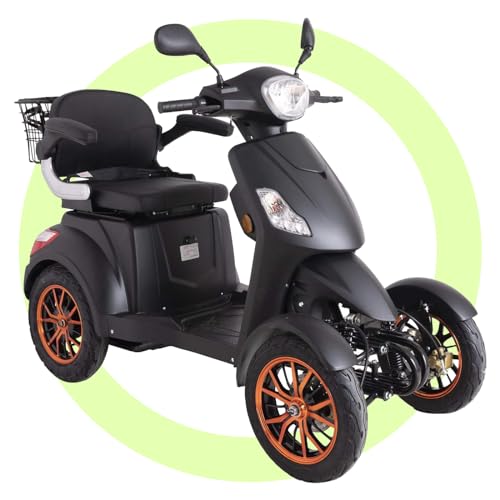Scooter Green Power
Scooters are an enjoyable and safe method to travel. Scooters are also eco-friendly. However, it's important to research the product prior to purchasing one.
Scooters aren't as carbon-free as they appear. They come with hidden costs. The production and mining of the batteries that power electric scooters produces significant emissions. The environmental impact of shipping scooters from charging stations to where the riders are added.
Battery Life
The battery is among the main components in any scooter, and it has an enormous impact on how green your scooter really is. This is because when a battery dies it releases toxic chemicals into the atmosphere which can have a major ecological and economic impact.
Electric scooters are highly energy efficient, consuming only less power that cars use when traveling the same distance. This can reduce the amount of pollution that is emitted into the air and also reduce climate change, and it can also help avoid traffic congestion. The e-scooters still produce a small amount of carbon dioxide when charging. If the energy source is from renewable sources, this can make e-scooters even more sustainable.
green power scooter reviews come with interchangeable batteries that can be used to recharge other scooters in a fleet. This eliminates the requirement for companies to transport their scooters to recharge. Some companies are also investigating hyper-local energy production. Grids can make use of the battery power to balance the supply and demand.
If you are planning to use your scooter for long journeys you should consider purchasing a larger battery or a second battery that you can swap out. You can travel longer distances without having to recharge the battery so often. This is especially important especially if you live located in an area with extreme weather conditions. It is also recommended to recharge the battery before storing it for weeks or months at the same time. If you don't do this, it could cause the battery to stop holding a charge when you require it again, which can be inconvenient and potentially dangerous.
Overall electric scooters are more eco-friendly than other forms of transportation. They emit fewer greenhouse gases that contribute to global warming and use less raw materials to manufacture. They can be charged with clean energy, which reduces their carbon footprint. When looking at the sustainability of a scooter it's important to take into account its entire life cycle. This includes the production of the scooter, the energy needed to charge it, and its disposal.
Design
Electric scooters' design can be a major influence on their environmental credentials. Scooters that have regenerative brake systems, like they can convert energy that would be lost otherwise into more battery life, allowing them to travel farther on each charge. A lot of scooters can be designed to travel shorter distances, which can reduce the number of trips to the vehicle required. And, unlike traditional vehicles, scooters emit no carbon dioxide during use.
It is crucial to take into account the environmental impacts of electric scooters' whole life-cycle. This includes the extraction of raw materials, manufacturing and disposal at the end of its life. The manufacturing of lithium Ion batteries is energy-intensive and can cause destruction of habitats pollution of soil and water and greenhouse gases. Additionally, mining and transportation of raw materials could have a significant impact on the environment.
Another major problem with scooters is their lack of durability. The average scooter only lasts several months on the streets before it is taken off the road. This could require scooter companies to extract more aluminum, and engage in more shipping and other resources-intensive activities. And, since most scooters are rented rather than owned, the scooters need to be collected and transported to charging stations (often by automobiles) when they run out of juice.
Scooters could contain hazardous wastes that could be a threat to the public health and the environment. If they are not properly recycled the waste could end in rivers or landfills, where it can be a danger to people and wildlife.
While scooters are generally better for the environment than conventional vehicles, there are some issues that must be addressed in order to make them completely eco friendly. If all scooters were made from 100% recyclable material and the power that drives them comes from renewable sources, they will be a carbon-free method of transportation.
Maintenance
The cost of electric scooters is less expensive than an ordinary vehicle. However, it still needs routine maintenance. The battery pack is the primary component to think about. It needs to be charged regularly and replaced when it is nearing the expiration date. This is also dependent on the speed controller. If the speed controller is not functioning properly it can impact the performance of the scooter.

If the scooter cuts out or shuts down while riding, it usually indicates that the battery pack is faulty. It could also be due to a fuse or a charger that doesn't work correctly. Examine the indicators on the charger to make sure they're green (charging) and not red (off). It's recommended to charge the scooter each time it's in storage, even when you don't use it.
Another common problem is a defective normally closed brake lever switch. To check for this, disconnect the wire from the switch for the brake lever and bridge the terminals together in the controller's connector that the wire is unplugged from. If the scooter continues to run in a continuous manner, the switch may be malfunctioning.
Throughout the day, scooter service providers allow people to drive trucks or cars and return to their offices any electric scooter that is out of power. This kind of service can help to keep their fleet in good in good working order. It also allows them to recharge the batteries for the next trip. A lot of people don't have this option and must change their scooters if they run out of juice.
